Fight Club
Fight Club, the 1996 debut novel by Chuck Palahniuk, offers a scathing critique of a society ensnared by rampant consumerism and the resulting emotional numbness. Through the harrowing journey of its unnamed narrator, readers witness the desperate pursuit of authenticity in a material-obsessed, modern dystopian world on the brink of collapse. This dark and sardonic tale served as the inspiration for David Fincher's cult classic film starring Edward Norton, Brad Pitt, and Helena Bonham Carter. This is a signed first printing and review copy of the first edition with publisher's publicity sheet laid in. Octavo, half cloth with boards.
Signed by Palahniuk on the title page.
Hardcover. First Edition, First Printing. New York: Norton, 1996. Oregon Book Award winner (1997). ISBN: 0393039765. #10323.
Fine in fine dust jacket.

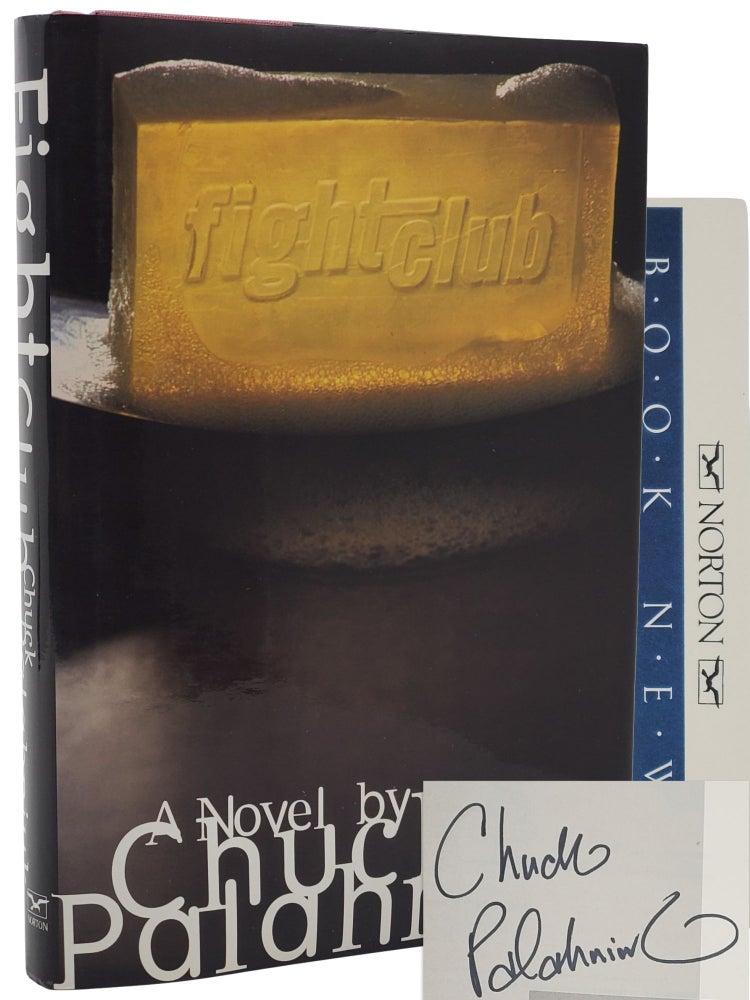

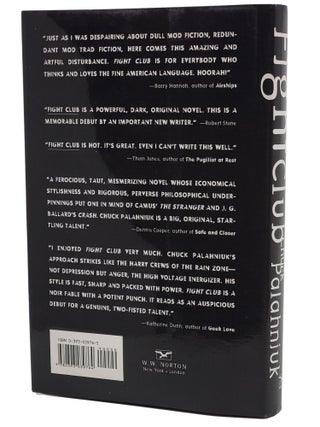


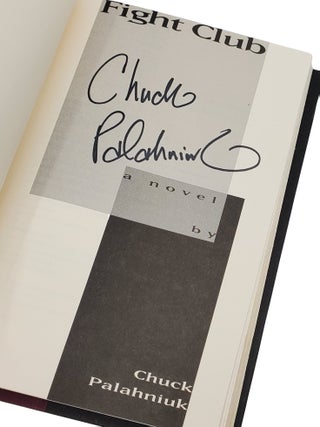
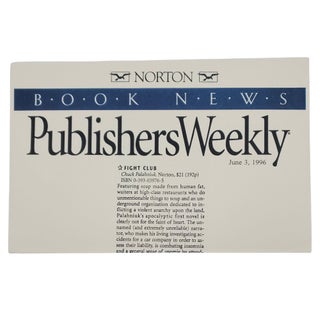
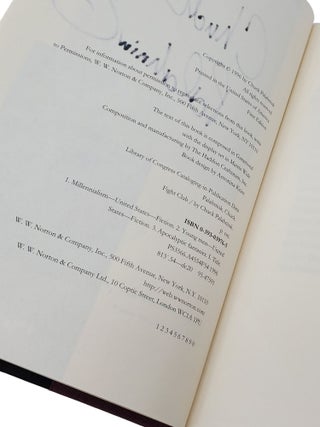

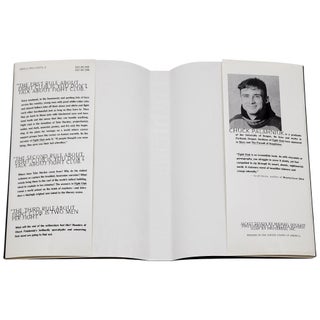
In Chuck Palahniuk's dystopian novel Fight Club, published in 1996, readers are plunged into a dark and sardonic exploration of a society crippled by rampant consumerism and the emotional numbness it breeds. Through the lens of an unnamed narrator, a recall specialist entrenched in the monotonous grind of the corporate world, we witness the unraveling of the human spirit amidst a backdrop of materialistic obsession and the pursuit of designer goods.
As the narrator grapples with insomnia and a burgeoning disillusionment with the emptiness of his daily life, he seeks relief in a peculiar way: through attending support groups for the terminally ill. Initially, these gatherings offer a sanctuary where the raw, unguarded sharing of experiences grants him an emotional release, alleviating his insomnia and imbuing him with a newfound sense of connection. However, this semblance of healing shatters with the appearance of Marla Singer, another "tourist" infiltrating these support groups. Her presence disrupts the narrator's newfound solace, exposing the facades they both maintain.
As his disillusionment festers, a chance encounter with the enigmatic Tyler Durden propels the narrator into a world of chaos and rebellion. Tyler advocates for a complete rejection of material possessions and societal norms, ushering the narrator into the underground realm of fight clubs. These brutal gatherings, where men engage in raw physical combat, become an unconventional therapy, a baptism through violence that awakens the narrator to life's visceral realities.
Tyler's philosophy soon spirals into "Project Mayhem", a movement aiming to dismantle the corporate structures that hold society in a stranglehold of consumerism. As the narrator journey from corporate drone to revolutionary, his grip on reality loosens, leaving him grappling with the escalating violence of Tyler's campaign and his own fragmented identity.
Fight Club serves as a scathing critique of a world gone mad with consumerist desires, showcasing a desperate attempt to reclaim humanity from the jaws of a society obsessed with material possessions. Through the eyes of a protagonist seemingly enslaved by his belongings, until a twist of fate frees him from these chains, we witness a radical attempt to hit rock bottom and reset, a chance to find authenticity in a world that has lost its way.
In the wake of its publication, Fight Club served as the blueprint for the David Fincher-directed film starring Edward Norton, Brad Pitt, and Helena Bonham Carter, which has cemented its status as a cult classic. While capturing the essence and raw energy of the novel, the film takes liberties with the ending, offering a different but equally compelling conclusion that continues to spark debates and discussions among fans and critics alike, solidifying its place in the annals of contemporary cinema